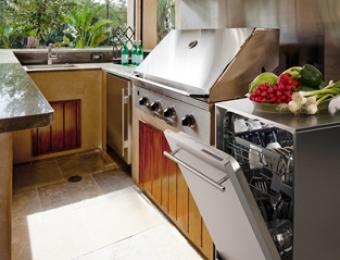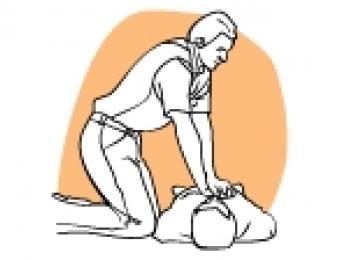
Image by Saimens, used under the CC BY-SA 2.0 license.
Summer is barbecue season, but if you’re thinking of throwing some sausages on the barbie and inviting a few friends around, it's worth taking the time to consider what you need to do with the LPG you are going to use.
It's easy to become complacent, but it's worth remembering just how much gas your LPG gas tank actually holds, and how combustible it actually is. Something as simple as a pin-prick sized hole in a fuel hose can easily develop into something much more nasty. Thankfully, keeping your barbecue safe normally only requires some basic checks from time to time, and a bit of common sense.
Below are 12 barbecue safety tips:
- Ensure your gas cylinder is tested and stamped by a qualified service person at regular intervals.
- Check for gas leaks by spraying soapy water on the connection or hose and watching for bubbles (do not immerse in water).
- Remove all combustible materials from around the barbecue.
- Remove excess fat/oil from barbecue after each use.
- Never use your barbecue indoors or in a confined space - always make sure you have plenty of ventilation.
- Gas cylinders should be maintained in an upright position and not exceed 9kg when transported in a car. If you need to transport LP Gas cylinders make sure they are upright and, where possible, carry them in an open vehicle, especially in hot weather. If this is not possible, cover the cylinder in a wet towel and ensure the vehicle is well ventilated.
- Always connect or disconnect cylinders well away from any naked flames or ignition sources.
- Store cylinders in the shade, away from direct sunlight.
- Dented or damaged cylinders should not be used, and should be returned to your supplier.
- Always replace cracked or damaged hoses (if you're unsure of how to do it or whether or not your hose is damaged, call a qualified gasfitter).
- Never fill cylinders for household use with automotive LPG
- Store petrol, flammable liquids or aerosols away from cylinders.
If you are still unsure about gas safety, your plumber/gasfitter should be happy to give advice. Get your gas fitter to do a valve/bottle check next time he or she visits you - the installation may require a new regulator.
Attaching your BBQ to your natural gas supply
If you have plumbed-in natural gas, you might like it piped directly into the BBQ. This will save you the hassle of managing gas bottles, and in particular having your gas run out during that important Saturday night family gathering. If you are thinking of having your barbecue attached directly to your natural gas supply, the regulator and burners will most likely need to be swapped over on the BBQ. Talk to your gas fitter for more information on what's involved.





